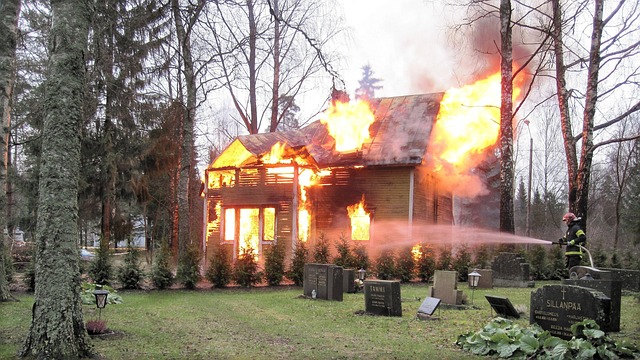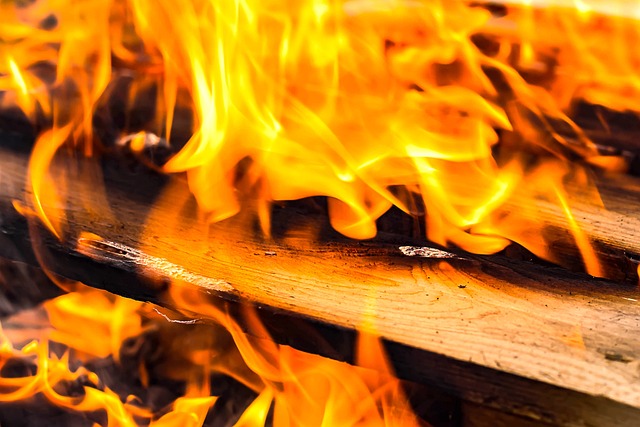Navigating the fire insurance claims process in Houston involves immediate notification of the insurer, detailed documentation of damage (including photos and records), filing a formal claim with comprehensive information, and understanding the insurer's assessment and negotiation phase. For those planning to sell a fire-damaged house, meticulous documentation is key for an accurate loss assessment and streamlined settlement. The appraisal process, where insurance adjusters inspect the property, determines the compensation amount. Homeowners can then decide whether to repair or sell, leveraging Houston's real estate market by strategically preparing and marketing their home.
Fire can devastate, but understanding Texas’s fire insurance claims process is crucial for recovery. This guide navigates your journey, from documenting fire damage in Houston to selling your fire-damaged home. We’ll walk you through the appraisal and settlement process, providing valuable tips and strategies specifically tailored for Houston real estate market. Learn how to turn a tragic event into a smooth transition, ensuring you receive fair compensation while effectively selling your fire-damaged house in Houston.
- Understanding Fire Insurance Claims Process in Texas
- Documenting and Preparing Your Fire Damage Claim
- Navigating the Appraisal and Settlement Process
- How to Sell a Fire-Damaged House in Houston: Tips & Strategies
Understanding Fire Insurance Claims Process in Texas

In Texas, navigating the fire insurance claims process can seem daunting, but understanding the steps is key to a smoother recovery. When a fire damages your Houston property, the first step is to notify your insurance provider as soon as possible. They will assign an adjuster who will inspect the damage and provide an estimate for repairs or replacement costs. It’s important to document everything—take photos of the affected areas, keep records of all communications with your insurer, and gather any relevant documents related to ownership and repairs.
During this process, homeowners in Houston can expect a series of interactions with their insurance company. They will need to file a formal claim, providing detailed information about the incident and the extent of the damage. The insurer will then assess the claim, verify the accuracy of the information provided, and negotiate settlement terms. Once approved, policyholders can proceed with repairs or rebuild their home, ensuring they follow any guidelines set by their insurance provider for restoration work. For those looking to sell a fire-damaged house in Houston, understanding this process is crucial, as it can impact timelines and compensation amounts.
Documenting and Preparing Your Fire Damage Claim

After a fire, the first step in navigating your insurance claim is comprehensive documentation. If you’re looking to sell a fire-damaged house in Houston, start by taking detailed photos of both the damaged property and any unaffected areas. This visual evidence will be crucial when presenting your case to your insurer. Additionally, keep records of all communication with your insurance company, as well as receipts for any temporary repairs or accommodations you may need while your claim is processed.
Next, prepare a thorough inventory of personal belongings affected by the fire. Document these items’ condition and value using receipts, appraisals, or even detailed descriptions. This process ensures an accurate assessment of your losses and can streamline the claims settlement process. Remember, meticulous documentation is key to a successful fire insurance claim, especially when aiming to sell a fire-damaged house in Houston.
Navigating the Appraisal and Settlement Process

After a fire strikes, many homeowners in Houston wonder how to sell a fire-damaged house. The first step is understanding the appraisal process. Once your insurance provider assigns an adjuster, they will inspect the property and determine the scope of damage. This appraisal plays a crucial role in setting the settlement amount. During this phase, it’s essential to document all losses thoroughly—from structural damage to personal belongings—to ensure every aspect of the claim is considered.
The settlement process begins once the adjuster provides their report. Your insurance company will then issue a check for the agreed-upon value, less any deductibles owed. At this point, you can choose to either repair and rehabilitate your property or sell it as-is. If opting for the latter, Houston’s real estate market offers opportunities for those with fire-damaged homes, provided all necessary repairs are disclosed to potential buyers.
How to Sell a Fire-Damaged House in Houston: Tips & Strategies

Selling a fire-damaged home in Houston can be challenging, but with the right strategies, it’s possible to navigate this process successfully. The first step is to assess the extent of the damage and determine if repairs are feasible. If extensive damage has occurred, consider working with professionals who specialize in restoring homes after fires. They can provide an accurate assessment and help you understand the potential costs involved.
Once repairs are either completed or planned, it’s time to prepare your home for the market. Begin by decluttering and cleaning the property to showcase its best features. Address any visible signs of fire damage, such as smoke stains or charred areas, with professional remediation techniques. Ensure all repairs meet local building codes and safety standards. Implement effective marketing strategies, including high-quality photography and detailed property listings, to attract potential buyers who may appreciate the potential for transformation or the value of the land itself.
Fire damage can be devastating, but understanding Texas’s fire insurance claims process is crucial for a smooth recovery. From documenting your losses to navigating appraisals and settlements, this guide equips you with the knowledge to manage your claim effectively. For homeowners in Houston looking to sell a fire-damaged house, our strategies provide valuable insights to ensure a successful transition. Remember, with the right preparation and understanding of the process, you can overcome these challenges and even unlock opportunities for a brighter future after a fire.






